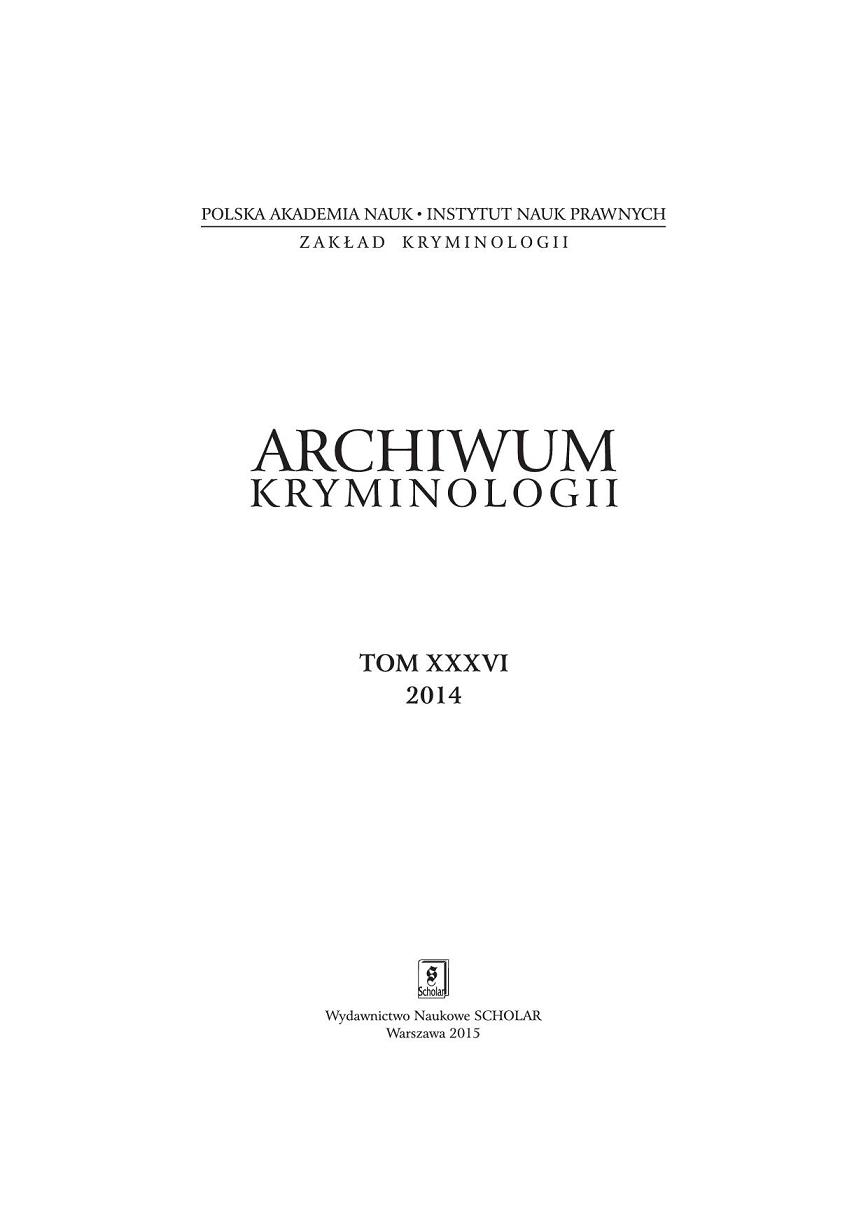Wykorzystywanie seksualne małoletniego pokrzywdzonego w rodzinie - wybrane zagadnienia kryminologiczne i penitencjarne
Sexual Exploitation of a Minor in the Family: Selected Criminological and Penal Issues
Author(s): Małgorzata Szwejkowska, Dariusz ZałuskiSubject(s): Law, Constitution, Jurisprudence
Published by: Instytut Nauk Prawnych PAN
Keywords: sexual exploitation; minor; criminology;
Summary/Abstract: Incest is a perennial moral taboo. The word usually denotes sexual relations between close family members, and less frequently, in-laws and adoptees. Prohibitions on engaging in these types of sexual relations can be found in every society. The family members prohibited by the criminal law from engaging in sexual relations with each other might have changed and narrowed over the centuries, but this type of deed remains proscribed by most criminal law systems. It is usually noted, however, that the small number of convictions recorded for this type of crime every year is a sign that a clear majority of perpetrators of incest and similar acts go unpunished. Where the legal provisions concerning incest fall short is in their practical ineffectiveness when it comes to preventing victimisation. A general psychological profile of this type of offender has yet to be created, as has a broader profile of the paedophile. This might be difficult because the nature of what causes sexual preference disorders (e.g. paedophilia, sadism and fetishism) has yet to be determined. The results presented in this paper are intended to reveal the character traits that distinguish offenders who incestuously exploit minors and who have been diagnosed as paraphiliacs. The average age of the offenders surveyed was 43 years. This finding accords with results of the studies presented in the international literature, viz. that people convicted of incest and other sexual offences against minors living with them in the same household are older than rapists and paedophiles whose victims do not live with them in the same household. The survey group was dominated by people with primary (including 5 who had completed “special schools” at primary level) or vocational education (most common among those convicted). A mere 7 people who could produce a diploma to prove they had finished secondary school were recorded and most of these qualifications were vocational. No one in the group had higher education. Their level of education was found to match their current occupations, i.e. trades or manual labour that did not require any special qualifications, and to bear out the fact that most of them were of average IQ. Everyone in the group had been diagnosed with one or more sexual preference disorders and for this reason they were all completing remedial programs while serving prison terms. This category of convicts was dominated by people diagnosed as repeat heterosexual paedophiles. It is also worth noting that many in the group had been diagnosed with other psychiatric disorders – especially alcohol dependence syndrome – in addition to sexual preference disorders. The victims were overwhelmingly female (59 or 85.5% of the total). Thirty six of these girls had been sexually exploited by their biological fathers. The sex of the victim would therefore appear to be of crucial importance in terms of threats from friends and relatives living in the same environment.
Journal: Archiwum Kryminologii
- Issue Year: 2014
- Issue No: XXXVI
- Page Range: 341-362
- Page Count: 22

